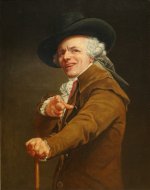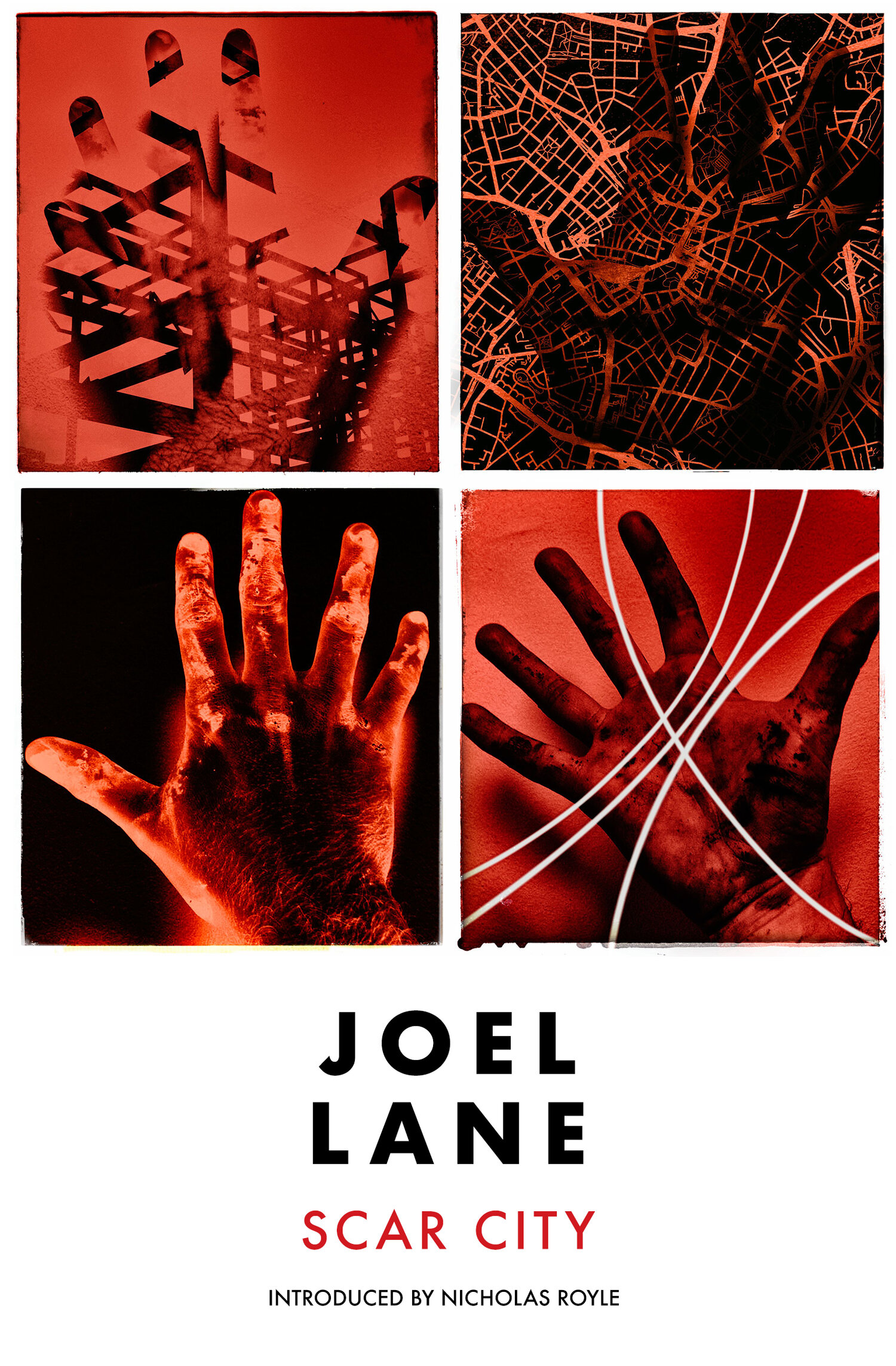You are using an out of date browser. It may not display this or other websites correctly.
You should upgrade or use an alternative browser.
You should upgrade or use an alternative browser.
what are you reading now?
Mr. Tea
Let's Talk About Ceps
Another point of interest in LIGHTS is the names of streets and other features that create a sort of parallel London, but not in an explicitly 'psychogeographical' way, which could potentially be quite annoying and I think would be hard to get away with these days without looking a bit dated, given that that whole scene was very much of-its-time and seems to have more or less fizzled out.
Benny Bunter
Well-known member
Got LIGHTS lined up next, looking forward to it.
Currently reading the penguin classics edition of Lyrical Ballads, the OG 1798 version with only 23 poems but has all the archaic spellings in Rime of the Ancyent Marinere and stuff as it was originally printed. Such a beautiful book.
Currently reading the penguin classics edition of Lyrical Ballads, the OG 1798 version with only 23 poems but has all the archaic spellings in Rime of the Ancyent Marinere and stuff as it was originally printed. Such a beautiful book.
Mr. Tea
Let's Talk About Ceps
I love the idea of poetry from more than 200 years ago being 'OG'.Got LIGHTS lined up next, looking forward to it.
Currently reading the penguin classics edition of Lyrical Ballads, the OG 1798 version with only 23 poems but has all the archaic spellings in Rime of the Ancyent Marinere and stuff as it was originally printed. Such a beautiful book.

"Shame on a Negro who wouldst fain swindle his Fellow", etc. etc.
forclosure
Well-known member
Never liked those memes
In other news considering he's on an album with Brandon Lopez and Gerald Cleaver that came out earlier this week taking a break from the novels today to read Fred Moten's The Little Edges which was part of his experiment in "shaped prose" i kinda wish i had a physical copy cause even though the digital version has replicates the structure and format something just feels a little off.
But aside from that the writing is really striking its driven by theory but it doesn't come across sterile and the way he's able to go from the macro to micro and feel out certain words is quite extraordinary they might be written in a minimal and abstract style but the scope of them feels like their gigantic.
and on a similiar kind of expansive multifascted style of writing i've also been checking out The Ancient Rain: 1956-1978 a collection of poems by Bob Kaufman he's considered by some the original beat poet and condescendily reffered to as "the black Rimbaud" but that really undermines just how singular and sensual it is, definitley comes to life when you read it aloud aswell in all its surreal glory
In other news considering he's on an album with Brandon Lopez and Gerald Cleaver that came out earlier this week taking a break from the novels today to read Fred Moten's The Little Edges which was part of his experiment in "shaped prose" i kinda wish i had a physical copy cause even though the digital version has replicates the structure and format something just feels a little off.
But aside from that the writing is really striking its driven by theory but it doesn't come across sterile and the way he's able to go from the macro to micro and feel out certain words is quite extraordinary they might be written in a minimal and abstract style but the scope of them feels like their gigantic.
and on a similiar kind of expansive multifascted style of writing i've also been checking out The Ancient Rain: 1956-1978 a collection of poems by Bob Kaufman he's considered by some the original beat poet and condescendily reffered to as "the black Rimbaud" but that really undermines just how singular and sensual it is, definitley comes to life when you read it aloud aswell in all its surreal glory
Last edited:
I'm at page 120 of the robert graves now, just had the quite exciting chapter where there is a big gladiatorial contest in honour of Claudius' father and there's a fella called "Roach" who murders a German. Not been reading it very regularly so I'm already losing any decent sense of the complex of characters and various machinations, but I remember that happening with the TV series as well and it doesn't really matter.
Gotta say, so far, I'm not enjoying it quite as much as I hoped I would, but I think I'm just having trouble reading something a bit dense / concentrating.
Not gone back to mckenna again, was reading it on my phone and I much prefer reading a book in print if i can.
Gotta say, so far, I'm not enjoying it quite as much as I hoped I would, but I think I'm just having trouble reading something a bit dense / concentrating.
Not gone back to mckenna again, was reading it on my phone and I much prefer reading a book in print if i can.
Murphy
cat malogen
Only dipped into Graves directly for myth analysis and covering Cad Goddeu in the White Goddess. The Art of Memory by F Yates is an adjunct but they’re both of their time a tad (linguistics has moved the debates forward)
Adore BBC’s I Claudius
@woops your book begins over the weekend now I can finally think through morphine’s fugue
Adore BBC’s I Claudius
@woops your book begins over the weekend now I can finally think through morphine’s fugue
IdleRich
IdleRich
I remember my friend described it as loads of luvvies in sandals with plastic swords - thing is, he's not wrong but it's great even so.Adore BBC’s I Claudius
jenks
thread death
Reading, among others, Ourageous Horizon by Adrien Bosc (trans Frank Wynne)
A converted cargo ship, the Paul-Lemerle, left Marseille on a voyage to the Caribbean, fleeing Vichy France and the devastation of the war. The ship was filled with immigrants from the East, exiled Spanish Republicans, Jews, stateless persons and decadent artists. Among them were Claude Levi-Strauss, the painter Wifredo Lam, the writers Anna Seghers and Andre Breton, and the Russian revolutionary Victor Serge.
I liked his last one Constellation and he does this slipping between fiction and non fiction very well. I've read quite a few Wynne translations and he generally picks decent stuff to get involved in. Also i seem to be drawn to novels about displaced people at the moment
A converted cargo ship, the Paul-Lemerle, left Marseille on a voyage to the Caribbean, fleeing Vichy France and the devastation of the war. The ship was filled with immigrants from the East, exiled Spanish Republicans, Jews, stateless persons and decadent artists. Among them were Claude Levi-Strauss, the painter Wifredo Lam, the writers Anna Seghers and Andre Breton, and the Russian revolutionary Victor Serge.
I liked his last one Constellation and he does this slipping between fiction and non fiction very well. I've read quite a few Wynne translations and he generally picks decent stuff to get involved in. Also i seem to be drawn to novels about displaced people at the moment
you
Well-known member
Still enjoying and cannot recommend enough Joel Lane's Scar City (Influx Press). A collection of short stories based around Birmingham, the Black Country and West Midlands (where I live).
There is one story, 'Keep the Night' that heavily takes from Robert Aickman's 'The Swords' (based in Wolverhampton) but is notably set outside of the Midlands in Milton Keynes. Lane's stories are amazing, deeply resonant, rich with life and nihilism.
The title says it all vis-a-vis the lives and territory on a number of levels at once scarred and barren. Scar City, scarcity. Brilliant.

 www.influxpress.com
www.influxpress.com
There is one story, 'Keep the Night' that heavily takes from Robert Aickman's 'The Swords' (based in Wolverhampton) but is notably set outside of the Midlands in Milton Keynes. Lane's stories are amazing, deeply resonant, rich with life and nihilism.
The title says it all vis-a-vis the lives and territory on a number of levels at once scarred and barren. Scar City, scarcity. Brilliant.

Scar City — Influx Press
you
Well-known member
Oddly, I think the first Lane text I read was his essay on Ligotti in This Spectacular Darkness. Then I moved to his fiction; The Earth Wire.
The comparison with Priest
"Lane displays a stylistic kinship with Robert Aickman, yet often taking that writer’s type of trademark ambiguous strangeness to an even higher plateau. I was also reminded of Christopher Priest’s authorial voice, yet Lane is more oriented toward human relationships than Priest, and more successfully probes at their nuances."
Cooper makes rings right, certainly in the sense that Lane reads more empathically, he does have a knack for tenderness, albeit devoid of cliché, joy, hope - but not love.... which is where he's most interesting, for me, in this sense.
The comparison with Priest also rings true when comparing with Ligotti, the latter more coldly Kafkian and isolated whereas in Lane there is more humanity, a sort of collective loneliness - which is a round about way of agreeing with Cooper that Lane is more attuned to human relationships.
Last edited:
I did like the short story I read, was this sort of supernatural thing about a guy going back to his hometown, there's some horror crime happened. Hes good at writing Psychogeography, but it's in the background, sort of where it should be, tends to work best that way. I'll have a lookout for this influx collection.
I've never read any of the others referenced by Cooper, I'm not much into horror generally. But heard ligotti is very good.
I've never read any of the others referenced by Cooper, I'm not much into horror generally. But heard ligotti is very good.
This is the Joel Lane one that sounds good


forclosure
Well-known member
i've never heard of Joel Lane, what's a good book of his to start with the premise of that From Blue to Black book feels like its predisposed to be loved by K-punk acolyte types
like COME ON MAN
like COME ON MAN
you
Well-known member
I read Amis's The Green Man - impetus was its reference in Ray Russell's Aickman biography.
Michael Dirda, in the introduction to my edition, speculates that it was some sort of ambition of Amis to out-do the ghost writing of the lover of his 2nd wife (Elizabeth Jane Howard, Aickman's partner for over ten years previously during his curiously open marriage/arrangement). Aickman, Russell details, considered his ex's new lover's production of a ghost story to be testament to his influence and literary accomplishments. This feels utterly narcissistic. I expect it was Jane Howard's influence on Amis (if anything) and had little to do with Aickman - she was of course the much more established and respected writer before Aickman found his modest success. Dirda says The Green Man is the most autobiographical of Amis's work. I wouldn't know, but it is enjoyable exploring these resonances between biography and fiction.
Michael Dirda, in the introduction to my edition, speculates that it was some sort of ambition of Amis to out-do the ghost writing of the lover of his 2nd wife (Elizabeth Jane Howard, Aickman's partner for over ten years previously during his curiously open marriage/arrangement). Aickman, Russell details, considered his ex's new lover's production of a ghost story to be testament to his influence and literary accomplishments. This feels utterly narcissistic. I expect it was Jane Howard's influence on Amis (if anything) and had little to do with Aickman - she was of course the much more established and respected writer before Aickman found his modest success. Dirda says The Green Man is the most autobiographical of Amis's work. I wouldn't know, but it is enjoyable exploring these resonances between biography and fiction.
jenks
thread death
There’s a very good Backlisted podcast on her ghost stories which does much to reevaluate her as more than certain kind of English ‘lady’ novelist. And Amis is an odd one isn’t he? Apparently wracked into near paralysis with all kinds of fears in his later life - from that cocky young gun slinger of Lucky Jim to a craven old man that lived in his ex wife’s house cos he couldn’t bear going outdoors.I read Amis's The Green Man - impetus was its reference in Ray Russell's Aickman biography.
Michael Dirda, in the introduction to my edition, speculates that it was some sort of ambition of Amis to out-do the ghost writing of the lover of his 2nd wife (Elizabeth Jane Howard, Aickman's partner for over ten years previously during his curiously open marriage/arrangement). Aickman, Russell details, considered his ex's new lover's production of a ghost story to be testament to his influence and literary accomplishments. This feels utterly narcissistic. I expect it was Jane Howard's influence on Amis (if anything) and had little to do with Aickman - she was of course the much more established and respected writer before Aickman found his modest success. Dirda says The Green Man is the most autobiographical of Amis's work. I wouldn't know, but it is enjoyable exploring these resonances between biography and fiction.
jenks
thread death
Just finished Cousin Bette which I thoroughly enjoyed as there is probably not one likeable character - a veritable nest if vipers. This the third Balzac I have read in recent months - as @craner wrote he’s obsessed by money and more importantly debt - the mind boggling financial comings and goings, investments both good and bad, financial social climbing and blackmailing all underpinning a most cynical insight into the human heart. Read alongside Brookner’s writing on French Romanticism makes a perfect complement.

